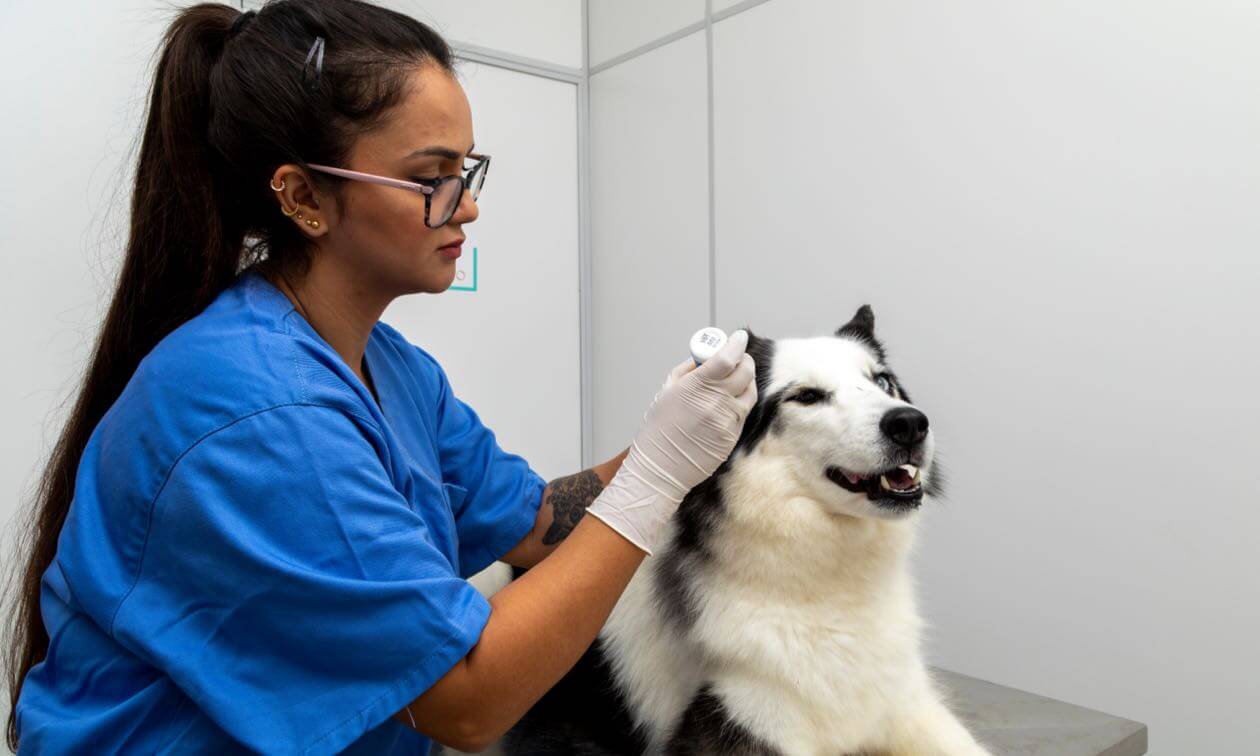Vaccination Standards From Your Relied On Veterinarian
Vaccination guidelines given by your trusted vet play a vital role in securing your pet's health and wellness and well-being. Furthermore, resolving common false impressions surrounding injections can better improve family pet owners' confidence in these preventative measures.

Significance of Inoculations
Vaccinations play a critical function in securing animals versus a variety of preventable illness. By stimulating the immune system to recognize and combat specific virus, vaccinations dramatically minimize the incidence of infectious conditions that can influence a family pet's health and wellness and longevity. Not just do vaccinations protect specific pets, but they additionally add to herd immunity, therefore minimizing the general prevalence of conditions in the animal populace.
Timely vaccinations aid to reduce the spread of diseases such as rabies, parvovirus, and distemper, which can have extreme effects for both family pets and humans. Inoculations are typically a requirement for boarding facilities, brushing services, and pet dog parks, making them important for those who desire to mingle their pets.

Core Vaccinations for Family Pets
While the particular vaccination requirements of animals can differ based on specific aspects, core vaccines are globally suggested to protect versus the most significant and common illness (Emergency Vet). Core vaccines are those regarded important for all pet dogs, despite their way of living or geographic area, as they protect versus highly infectious and possibly fatal illnesses
For pets, the core vaccines include those for canine distemper, parvovirus, adenovirus (liver disease), and rabies. Adenovirus can result in liver disease, while rabies is a zoonotic disease that presents a threat to both pet dogs and humans.
In pet cats, core vaccines include feline panleukopenia, feline calicivirus, feline herpesvirus (rhinotracheitis), and rabies. Feline panleukopenia is an extremely transmittable viral condition that influences the body immune system and intestinal tracts. Calicivirus and herpesvirus are significant factors to top respiratory system infections in pet cats, while rabies continues to be a vital worry for public health and wellness.
Seek advice from with your vet to ensure your animals get their core vaccinations on time.
Non-Core Vaccines Explained
Non-core vaccines are customized to resolve specific threats linked with a pet dog's way of living, atmosphere, and exposure to certain diseases. Unlike core vaccinations, which are generally suggested for all animals, non-core vaccinations are taken into consideration based upon individual situations. These vaccines are especially essential for pets that might come across distinct pathogens as a result of their geographical location, traveling practices, or activities.
Instances of non-core vaccines consist of those for Bordetella bronchiseptica, which is linked to kennel cough, and Lyme disease, brought on by ticks. Animals that regularly communicate with various other animals, such as those in boarding centers, canine parks, or brushing atmospheres, might benefit from Bordetella inoculation. If you live in an area where Lyme illness is prevalent, vaccinating versus this disease can be a sensible option for outdoor-loving dogs.
Other non-core vaccinations might consist of those for leptospirosis, canine flu, and feline leukemia, depending on the details risk aspects existing. It is necessary to have a complete discussion with your veterinarian regarding your pet's way of life and the prospective demand for these vaccines, guaranteeing a customized inoculation approach that best secures your hairy friend.
Vaccination Arrange Review

As pet dogs mature, it is necessary to follow the recommended booster vaccinations. Vet Enterprise. For adult pets, core vaccinations are normally offered every one to three years, depending upon the details vaccine and local guidelines. Non-core vaccinations might be advised based on way of life aspects and local condition frequency, necessitating a tailored method
Routine veterinary examinations are vital for upgrading inoculation timetables. Your vet can provide guidance on the most appropriate immunizations for your animal, factoring in age, wellness standing, and ecological threats. By remaining positive and notified, family pet owners can ensure their furry companions receive reliable and prompt inoculations, consequently securing their health and wellness and wellness throughout their lives.
Common Myths Concerning Vaccinations
Misconceptions concerning pet dog inoculations can cause confusion and hesitation among pet dog proprietors pertaining to the immunization process. One widespread misconception is that injections are unnecessary for interior family pets. While it holds true that indoor pet dogs encounter lower risks, they are not entirely immune to diseases, as virus can be introduced through numerous ways, including human apparel and other pets.
An additional mistaken belief is that vaccines can create the illness they aim to stop. In truth, most injections contain suspended or attenuated virus, Web Site which can Full Report not cause condition in healthy pets. Some animal proprietors also think that their animals need to not be vaccinated if they are currently healthy; nevertheless, vaccinations are a positive measure that assists prevent the beginning of illness.
Furthermore, lots of family pet proprietors are afraid that vaccinations will certainly lead to lasting wellness difficulties. The advantages of inoculation-- shielding pet dogs from possibly serious conditions-- much surpass the dangers.
Final Thought
In summary, adherence to inoculation guidelines is critical for making sure the health and long life of animals. Resolving typical misconceptions surrounding inoculations even more enhances the significance of educated decision-making in animal treatment.
Not only do inoculations protect private pets, but they additionally contribute to herd immunity, therefore decreasing the total prevalence of illness in the pet population.
Misconceptions regarding pet dog vaccinations can lead to confusion and hesitation among animal proprietors regarding the immunization procedure. While it's real that indoor animals deal with reduced risks, they are not completely immune click for source to illness, as virus can be presented through numerous methods, consisting of human clothes and other family pets.
Some pet dog owners also believe that their family pets need to not be immunized if they are already healthy; however, vaccinations are a positive procedure that aids prevent the onset of disease.
The benefits of vaccination-- securing family pets from possibly serious conditions-- much surpass the risks.